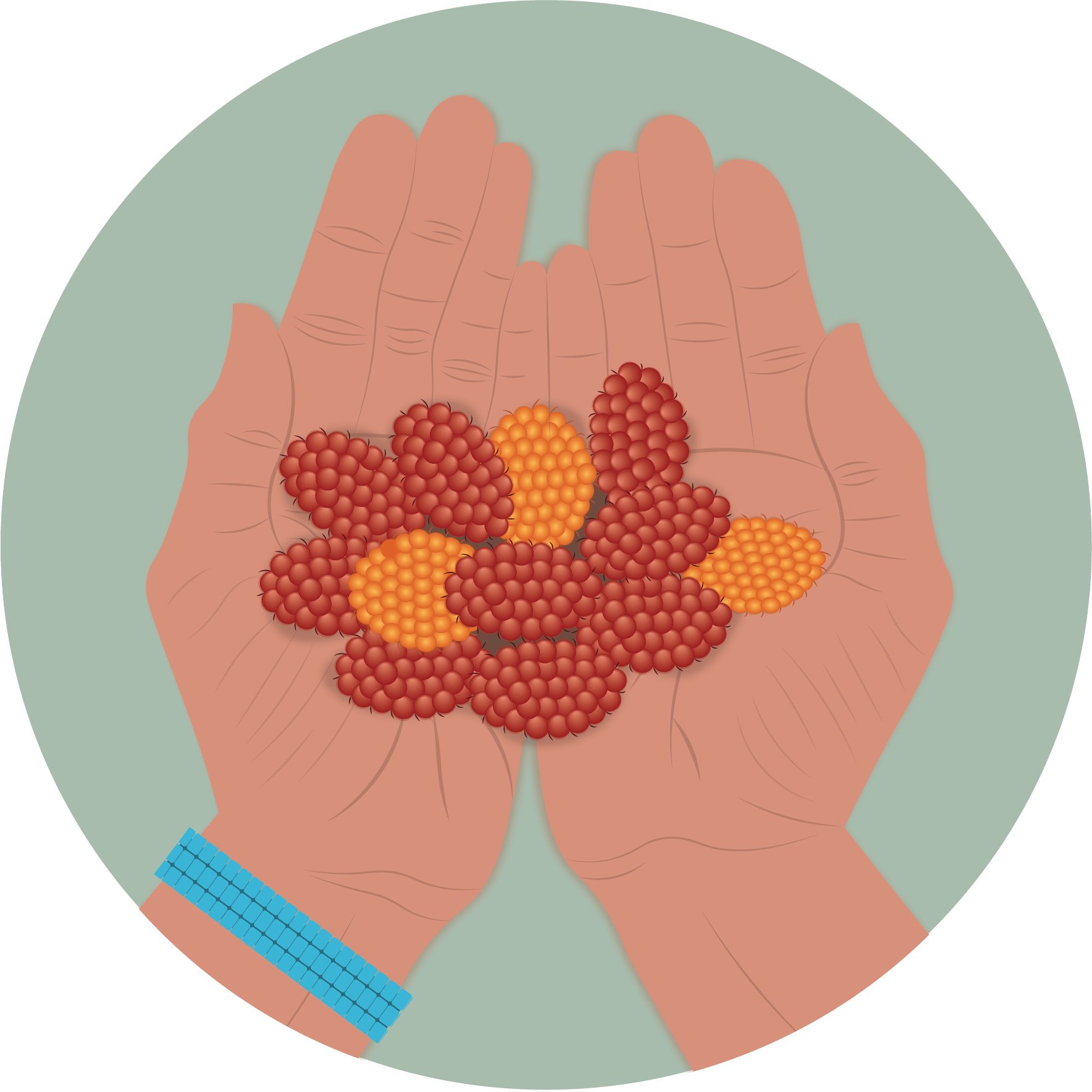Empathy and Persistence: The Heart of a Tribal Disease Investigator’s Success
“A short blog cannot do justice to some of the in-depth experiences Raven shared. Lessons learned and shared among tribal health programs can be a key part of mutually strengthening program effectiveness in Indian Country.”
In the fight against infectious diseases, science alone isn’t enough. It takes persistence, trust, and deep community understanding—qualities that Raven Sanchez, a Communicable Disease Investigator, brings to her work every day.
As syphilis cases reach a multi-decade high across the U.S., Indian Country faces some of the greatest challenges. Underfunded health systems, vast rural landscapes, and the stigma surrounding sexually transmitted infections (STIs) all make disease tracking and treatment harder. But people like Raven are changing that—one conversation, one connection, and one community member at a time.
Breaking through Silence
Imagine getting a phone call from an unknown number. Most of us wouldn’t answer. That’s one of Raven’s biggest hurdles. But connecting with patients is a key part of her job. It takes patience, persistence, empathy, and a good sense of humor. When calling people directly doesn’t work, Raven gets creative. Texting works far better. Once a patient responds, Raven can set up a call.
Interviews are then conducted over the phone, covering essential information about syphilis transmission, symptoms, and treatment. She always starts by asking what they know about syphilis, and based on that answer, she customizes what she needs to cover for patient education. After that comes the state-mandated sexual history interview. Raven emphasizes she must ask the same questions of every patient, no matter what. With that introduction, Raven turns the awkwardness of the state sexually transmitted disease form to a strength. The first question on the form is so ridiculously forward—do you engage in anal sex—that she and the patient can usually share a laugh that breaks the ice. Raven says that of the many patients and contacts she has interviewed, only a few have chosen not to be interviewed or not answer all the questions. By far, most interviews have been open and honest conversations and help increase the number of patients with syphilis who learn of their diagnosis and get treatment.
Taking Public Health to the Front Door
When calls and texts don’t work, Raven goes in person. Alongside a public health nurse (PHN), she conducts home visits to test and treat patients who might otherwise be lost in the system.
These moments require more than just medical expertise—they demand cultural sensitivity, discretion, and trust. Sometimes, a patient might deny who they are. In one case, Raven and her PHN colleague knocked on a door, only to be told the person they were looking for wasn’t home. But they knew the community. They recognized the woman answering the door. Instead of pushing, the PHN subtly steered the conversation, eventually gaining the patient’s trust and ensuring they received potentially life-saving treatment.
Fighting a Crisis with Limited Resources
Syphilis is not just a medical issue—it’s a systemic challenge.
Public Health Nurses and State Health Department Disease Investigation Specialists have often played a key role in communicable disease response, but these programs are increasingly underfunded and understaffed, and the situation looks like it may only get worse. .
One of Raven’s biggest tools? The state’s communicable disease database, effectively a data dashboard, essentialfor tracking the complexities of a syphilis epidemic. It allows her to track cases, monitor treatment progress, and identify those most at risk—especially pregnant patients. But even with data, real change requires people and persistence to reach patients.
Locally, it can be hard to expand partnerships in syphilis. Only a handful of individuals actively work in syphilis. It has been hard to engage more clinicians and public health counterparts. Raven tries to engage local clinics, providing posters, pamphlets, and training sessions. But between frequent medical staff turnover, and competing health priorities, syphilis often gets pushed aside.
A Role Built on Experience
Raven didn’t enter this work through traditional medical training. Her background in social work, life skills education, and behavioral health shaped her ability to connect with patients—especially those facing substance use disorder (SUD).
And that’s critical. SUD is a driving force behind the syphilis epidemic. Many of the people Raven works with are dealing with daily struggles that make prioritizing health difficult. Her ability to understand and navigate those challenges makes all the difference in getting them the care they need.
Learning as a Community
What’s happening in our community is not unique—it’s part of a larger movement across Indian Country. Tribes are leading the charge in fighting public health crises, using both data and community knowledge to create real solutions.
But no one can do this work alone.
We need to learn from each other, share what works, and build stronger networks of support. Do you have insights, challenges, or successes from your own community? Let us know. Because when we come together, we don’t just respond to disease—we build healthier, more resilient Nations.
Thanks and Gratitude
A short blog cannot do justice to some of the in-depth experiences Raven shared. Lessons learned and shared among tribal health programs can be a key part of mutually strengthening program effectiveness in Indian Country. We thank Raven immensely for sharing her experiences with us and invite other tribal communities to join us to both teach and learn as part of exercising sovereignty and self-reliance in public health.
